The Advisory Board
SOGICA’s Advisory board was composed of five members with expertise in asylum, human rights, socio-legal studies, SOGI policy-related matters and empirical methodologies. Its purpose was mainly to provide advice to ensure that the project fulfilled its objectives and that SOGICA was carried out in a way that met the highest methodological, ethical and academic standards.
Among other activities, the Advisory board:
- met regularly every year during the life of the project;
- provided input of different kinds in-between meetings, including in response to requests from the project team;
- promoted the project and disseminated SOGICA’s findings and resources through its members’ contacts and networks;
- participated in the final project conference in 2020.
The Advisory Board members were:
Giorgio dell’Amico. Giorgio has been a professional educator since 1992 and works for the social cooperative Caleidos in projects relating to immigration and asylum. Currently, for the cooperative, he coordinates one of the host projects welcoming approximately 1,200 people to the province. Since 2007 he has been the national representative for the Italian LGBTI NGO Arcigay on issues relating to immigration and asylum. He has participated in various national and European projects and is also involved in training for professionals working with LGBTI asylum seekers and refugees.
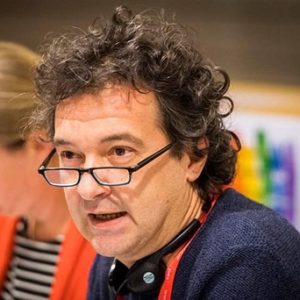
Prossy Kakooza. Prossy is an activist and is part of the Lesbian Immigration Support Group (LISG), which supports women who seek asylum based on their sexuality. She is currently an Outreach Coordinator for Refugee Support with the British Red Cross covering Greater Manchester.
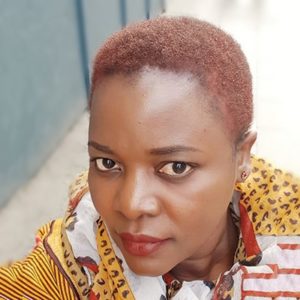
Vitit Muntarbhorn. Professor Muntarbhorn M.A., B.C.L. (Oxon.); Lic. Spec. en droit europ. (Brussels); Barrister of the Middle Temple (London) is Emeritus Professor of Law at Chulalongkorn University, Bangkok. His CV includes the following achievements and appointments: Independent Expert on UNESCO Advisory Board for Global Education Monitoring, representing the Asia-Pacific Region (2018-present); Member of the Committee of Experts on the Application of Recommendations and Conventions, International Labour Organisation (2009-present); UN Independent Expert on the Protection against Violence and Discrimination based on Sexual Orientation and Gender Identity (2016-17); Commissioner of the (UN) Commission of Inquiry on Syria (2012-2016); Member of the Advisory Board, (UN) Human Security Fund (2011-2016); Chairperson of the (UN) Commission of Inquiry on the Ivory Coast (2011); Former UN Special Rapporteur on the situation of human rights in the Democratic People’s Republic of Korea, UN Human Rights Council (2004-2010); Former Chairperson of the Coordinating Committee of UN Special Procedures (2006-07); Former member of Advisory Board, UN Voluntary Fund for Technical Cooperation on Human Rights, Office of UN High Commissioner for Human Rights; Former UN Special Rapporteur on the Sale of Children, Child Prostitution and Child Pornography, UN Human Rights Commission (1990-94); Recipient of the 2004 UNESCO Human Rights Education Prize.

Barry O’Leary. Barry is a partner and solicitor at Wesley Gryk Solicitors LLP in London, where he has worked since January 2000. The firm practices exclusively in British immigration and nationality law. Barry has been representing asylum-seekers with claims based on their sexual and gender identity since the early 2000’s. He has been a volunteer for the UK Lesbian and Gay Immigration Group (previously the Stonewall Immigration Group) since 2000 and continues to give advice at their monthly asylum and partnership meetings. He was on the management committee of UKLGIG for a number of years.
I have been representing LGBT refugees in the UK since the early 2000s. At that time, the prevailing response from the Home Office, Judges and lawyers was ignorance and prejudice. It was extremely hard to win asylum on the basis of sexual and gender identity.
The changes over the years are huge. LGBT refugees are now in a much more favourable position than they were. We can definitely be proud of how far the UK has come. However, there is much work to do. Refugees are still being told that their sexual and gender identity is not accepted. Countries of origin are still be unjustifiably characterised as safe.
I am delighted to be working with SOGICA as in depth research is needed so we can address these issues. Hopefully the UK can learn from good practice in Italy and Germany and vice versa.
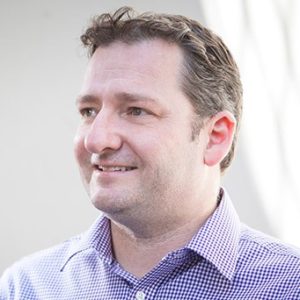
Anbid Zaman is a twenty-four-year-old LGBTQI+ Human Rights defender from Dhaka currently living in Cologne, Germany. From the very age of sixteen, he started his engagement in LGBTQI+ human rights, gender equality, environmental and social justice in Bangladesh. He worked for the first ever Bangladeshi LGBTQI+ magazine publishing organisation Roopbaan. His areas of responsibility include public relations, public speaking, project management and LGBTQI youth leadership programs in Bangladesh.
Since living in Germany, Anbid started working with both German and other European organisations campaigning for LGBTQI+ human rights, diversity, intersectionality, inclusion, migration and BlPoC rights. He joined the executive board of Aktionsbündnis gegen Homophobie e.V. in March, 2017 and recently got elected to represent Central Asian and European LGBTQI+ Youth to the ILGA World Intersectional Committee focusing on LGBTQI+ youth globally. Beside his international engagements, Anbid also collaborates with several local and grassroots organisations in Germany. Beside his activism, Anbid uses performance art in promoting human rights and social justice for all across borders.
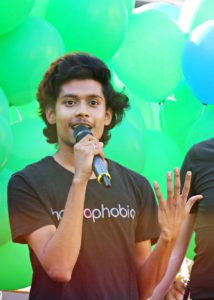
Dr Rute Caldeira, from Transparency International, and Maggie Merhebi were members of the Advisory Board from 2016-2018. The SOGICA project thanks Rute and Maggie for their support for our work.
First Advisory Board meeting
27 June 2017 – University of Sussex, Brighton (UK)
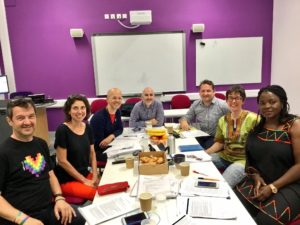
On 27 June 2017, Carmelo Danisi, Giorgio dell’Amico, Moira Dustin, Nuno Ferreira, Nina Held, Prossy Kakooza, and Barry O’Leary met for the first SOGICA Advisory Board meeting at the School of Law, Politics and Sociology, University of Sussex.
After a project overview and summary of progress so far, participants focused their discussion on the priorities in terms of the problems facing SOGI asylum seekers and gaps in research in this field. Among other questions, they agreed on the need to look at the experiences of people who do not fit stereotypes of SOGI asylum seekers, as well as the importance of following up with research participants – keeping asylum seekers and refugees informed of progress and about how their contribution has been used. Case studies from the UK, Germany and Italy were also presented and discussed, and some interesting points of comparison identified, including the lack of common standards between EU countries, the provision of separate accommodation for SOGI asylum seekers and whether this is desirable or not (it exists or is being developed in Germany and Italy but not in the UK), and policies on family reunion.
In closing, Professor Nuno Ferreira, leader of the project, thanked participants for their invaluable input.
Second Advisory Board meeting
17 May 2018 – University of Bologna, Forli (Italy)
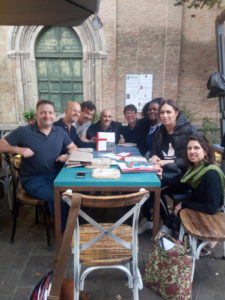
The second SOGICA Advisory Board meeting was held in Forlì, near Bologna, on 17 May 2018. Sadly, Rute Caldeira had to step down from the Board but all the other members and the SOGICA team (Barry, Giorgio, Maggie, Prossy, Carmelo, Moira, Nina and Nuno) met on a sunny afternoon at the School of Political Science of the University of Bologna.
The meeting started with a project update. There was general agreement that the project is on track and no unanticipated difficulties have emerged. The fieldwork in Germany and the UK is well underway, and in Italy it is complete bar the judicial hearing observations. Advisory Board members were consulted about specific aspects of the fieldwork, including how to access tribunals in some countries, and how to reach a more diverse group of participants, including trans and bisexual individuals and women. There was also discussion of some of the similarities and differences between different countries that are starting to emerge: while credibility is the main problem for individuals seeking asylum in Italy and the UK, it seems to be fear of persecution for people in Germany. Another factor that is emerging is that securing status is only one part of the picture for LGBTI people claiming asylum; their experiences of integration after they have received a decision are often difficult and they may be even more isolated once they are outside the asylum ‘system’ (a discussion that was reflected in participants’ observations at a conference on vulnerability and SOGI asylum the following day). Geographical differences are also evident – differences in terms of how people’s claims are treated in different parts of the receiving country, and also differences in how people are treated depending on their country of origin.
The Advisory Board also held a detailed discussion about the content of the two online surveys SOGICA will shortly be launching, in particular on how to make sure the questions asked provide new and useful information about people’s experiences to complement the one-to-one interviews and focus groups.
The meeting concluded with a discussion of the dissemination element of the project, and some initial thoughts about the final conference in 2020 and how to include as many of the project participants as possible given the difficulties that people who are seeking asylum will have in travelling within Europe.
Looking forward, the fieldwork phase of the project will be completed in the autumn, before the SOGICA team move on to the analytical phase of the work in 2018-2019. The regular work outlined about on the website, newsletters, social media and collaborative projects will all continue, as will participation in conferences and seminars, and regular publications.
Nuno thanked participants for coming and for their thoughtful and constructive contributions. The next Board meeting is likely to be in Germany in May or June 2019.
The meeting was followed by a delicious dinner at Eataly on Forlì’s main piazza with some of the speakers at the following day’s conference on Vulnerability and Asylum: Sexual Orientation and Gender Identity Claims organised by Carmelo Danisi. All the SOGICA Board Members and the project team spoke at the conference which was a great success and included many fascinating contributions on this increasingly important subject. Everyone gave a huge thank you to Carmelo for his hard work in enabling so diverse a range of individuals to share their experiences and expertise.
Third Advisory Board meeting
5 July 2019 – Goethe University, Frankfurt (Germany)
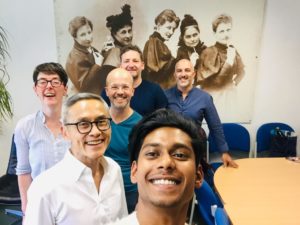
The Third SOGICA Advisory Board meeting was held in at the Goethe University, and took place the day after the highly successful conference ‘Under the European Asylum Rainbow: intersectional queer challenges’ organised by Nina. To everyone’s regret, Prossy was unable to attend this year, and was greatly missed. However, new Advisory Board members Anbid and Vitit were welcomed by Nuno, along with Carmelo, Moira, Nina, Barry and Giorgio.
As usual, the meeting began with an update on the project and look ahead to the work plan for the coming year. The SOGICA team has completed our project fieldwork, including individual interviews, focus groups and judicial hearings, as well as some field work at EU level and with Council of Europe officials. We have complemented the fieldwork with an online survey and are in the process of analysing the results. We have also submitted Freedom of Information requests in each of the case study countries with varying degrees of success.
The SOGICA project book proposal to IMISCOE was awarded second place and will be published with Springer. It will be open access so freely available online, as well as to buy in a printed version. The main task now is writing the project monograph, five additional articles and the project recommendations. We will also be continuing dissemination and networking through the project newsletter, website and database, as well as planning the final conference in July 2020.
Advisory Board members then gave feedback on draft chapters. This was followed by discussion of how best to disseminate the project findings, which individuals and organisations to target, and how to ensure the project’s legacy. Finally, the meeting focused on plans for the project conference in July 2020 at the University of Sussex, in particular how to make it as accessible as possible and ensure that as many of the project participants as possible are able to attend.
In closing, Nuno thanked the Advisory Board for the ongoing support and contribution to our work. We look forward to seeing everyone in a year’s time in Brighton.
Final Advisory Board meeting
6 July 2020 – online (connected from Germany, Italy, Thailand and the UK)
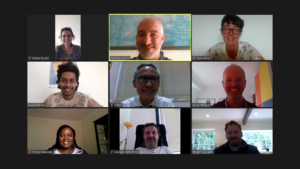
The fourth and final SOGICA Advisory Board meeting was held online the day before the start of the final SOGICA conference and with full attendance from the Board.
After welcoming participants, Nuno began with an update of SOGICA project activities and achievements since our last meeting in Frankfurt in 2019. While the main focus of the project team over the year has been writing our monograph, to be published by Springer later this year, we have produced various other publications and contributed to a number of events – all of which are listed on our website.
The project’s policy recommendations have been published, and benefitted from comments on earlier drafts from Board members and others in Germany, Italy and the UK, for which we are grateful. Nuno also announced the project’s survey report, which was published alongside the policy recommendations.
The meeting then discussed plans for dissemination of the SOGICA findings and outputs. The four project videos have all been launched and received an enthusiastic response. We are creating further podcasts to accompany them over the next three months. We will be disseminating our recommendations as widely as possible through our extensive networks, and are planning a policy workshop in the autumn, as well as exploring other options to hold events of our own or contribute to those hosted by other organisations.
After constructive suggestions from Board members for improving the project’s impact and reach, Nuno concluded by thanking the Board for their incredible contribution to the SOGICA project over the past four years. We very much hope there will be an opportunity to meet up somewhere in person before long.


